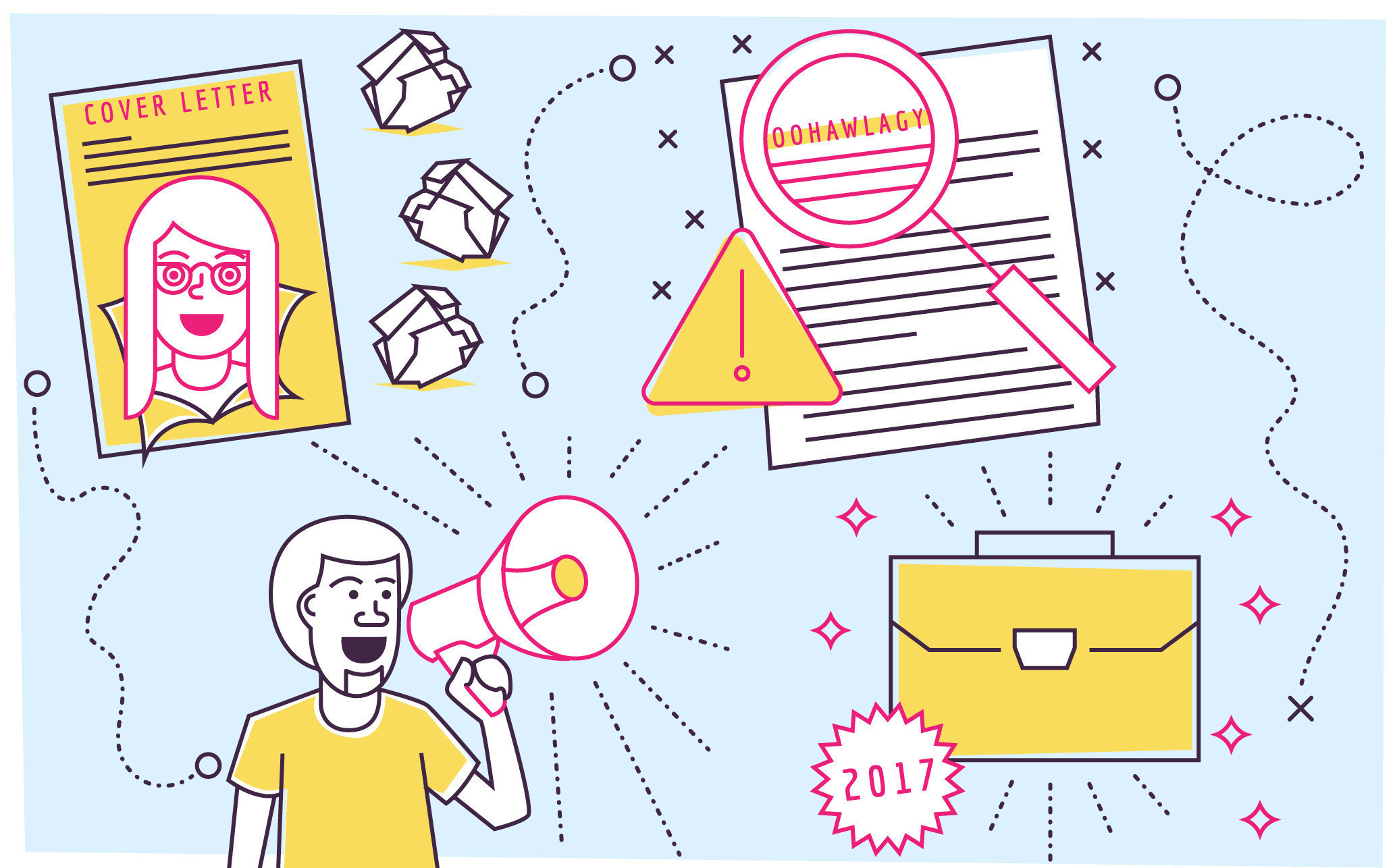So you want to work in advertising? Well, landing any agency job can be tough. And getting your first gig can feel impossible.
But it’s not. You have a lot of folks pulling for you, like your potential new employer.
That’s right. While it may feel like the deck is stacked against you, agencies want to hire you. In most small to mid-sized agencies, managers do their own hiring—in addition to seven or eight other hats they wear each day. Most hiring managers have a lot on their plate and would love nothing more than to find the perfect candidate on the first résumé.
But despite our hopes, many aspiring candidates manage to go above and beyond to find ways to lose the job. Hard-to-decipher applications, vague skillset descriptions and poor spelling and grammar are a few common follies. It’s important to mind the details. Beyond that, beware of these easy-to-fall-into traps that can derail your dreams of becoming the next Don Draper.

Generic Cover Letters Are Easy to Write—and Delete.
Are you a self-motivated, results-driven, people person who’s proficient at MS Word, PowerPoint and Outlook? That may have sounded great for an internship in 2003, but it lacks any substance in today’s digital landscape. Sadly, somewhere along the way that kind of say-nothing language has become standard résumé speak.
It’s hard to write about yourself. We get it. And using generic descriptors may seem like a good way to toot your own horn from a safe distance. But in advertising creativity counts, so whether you’re applying to be a creative director or junior accounts person, loosen up and have fun with it. Be clever. Be beautiful. Be yourself. Let your personality shine through. That’s your true north.
And while you’re charming your future employer with all that authenticity, mention some specific reasons you want to be a part of their agency: Call out a few clients you’d like to work with; talk about how much you like their wacky culture. Be specific. The goal is to show genuine interest in their particular firm, so the person reviewing your application doesn’t get the feeling you’ve spammed everyone in town with the same appeal (even if that’s exactly what you did).

Don’t Be Afraid to Tell Us What You Want.
You really want the job. I mean you realllly want it. And to show just how much, you may be tempted to say something like: “I am willing to work hard and help wherever I can—I just want to be a part of the team!” That kind of fire and passion isn’t a bad thing, but it can also be a sign you’re not a great communicator. Or desperate.
Advertising is a communications business, so add concrete details about the role you would like to play, should you get the job. Be clear and direct about duties, responsibilities and goals. We once had a candidate apply to be a copywriter, and it wasn’t until the bottom of his cover letter that he clarified he was applying for the copy position. We didn’t need to see the résumé.

Get Your Potential Employer’s Name Right. Seriously.
Think we’re joking? Our Creative Director, Brad Luttrell, has been called Brian, Kevin, and our particular favorite, “Ms. Luttrell.” One candidate once said that they “would be a great fit for Scoppechio.” And maybe they were, we never followed up to see.
In some ways getting a job is a numbers game, and more applications mean a better chance of hearing back, but if you rush through the process and make this kind of mistake, it will cost you. Agencies can’t risk turning you loose on accounts where hundreds of thousands of dollars (or more) are at stake when you can’t pin down your future employer’s name. Attention to detail will serve you well before and after the hire.

Call Out Experience and Work That’s Relevant.
If you’re applying to a digital agency, you need to show some competence in the area. Digitally scanned print ads from the early 2000s don’t count. Failing to follow this guideline will shoot your application in its proverbial foot before you even send it off to war.
Creatives, developers and marketers should always curate their portfolios for each application. Likewise, accounts folks should talk up their relevant experience. If the agency does a lot of healthcare work, hype up your hospital experience, or at least talk about it in your cover letter. Carry this mentality throughout your career, no matter whether you’re applying to be a secretary to director of account services.
So, to recap:
- No résumé speak. Be yourself, and let your personality shine through in your cover letter and résumé.
- Show ‘em you know ‘em. Make references to your potential employer’s clients and culture. Don’t come off as a spray-and-pray applicant.
- Leave no question about the role and responsibilities you desire—and why you’re qualified to carry them out.
- Mind the details. Don’t let an otherwise great cover letter and résumé be sullied by a silly mistake, like getting the employer’s name wrong.
- Be relevant. Don’t showcase work that isn’t applicable to the job you’re applying for. It shows you either didn’t read the application or didn’t understand it, which is worse.
And with that, have a look at our careers page. Best of luck!

